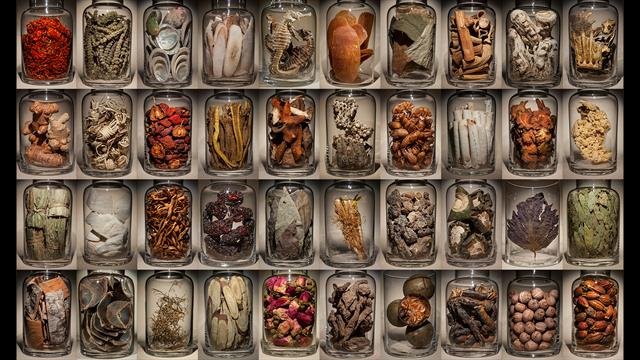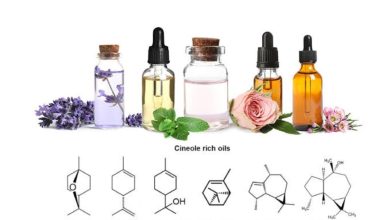Traditional Chinese Medicine Herbs List And Their Benefits

Traditional Chinese Medicine (TCM) is a system of healthcare that has been used in China and other parts of East Asia for thousands of years. It is based on the concept of Qi (pronounced “chee”), which is considered the vital energy that flows through the body’s meridians, or energy channels. The goal of TCM is to maintain the balance and flow of Qi throughout the body to promote health and prevent illness.
TCM includes a wide range of practices, such as acupuncture, herbal medicine, cupping, moxibustion, massage (Tui Na), dietary therapy, and exercise (such as Tai Chi and Qigong). Each practice has a unique approach and uses different techniques to address health issues.
Acupuncture is one of the most well-known practices of TCM. It involves inserting thin needles into specific points on the body to stimulate the flow of Qi and promote healing. Herbal medicine involves using natural substances, such as plants, minerals, and animal products, to treat various health conditions. Cupping involves placing cups on the skin and creating a vacuum to improve blood flow and release tension. Moxibustion involves burning an herb called moxa near the skin to warm and stimulate the flow of Qi.
TCM is based on a holistic approach to health, where the body, mind, and spirit are interconnected and need to be in balance for optimal health. It emphasizes the importance of preventing illness and maintaining a healthy lifestyle through diet, exercise, and stress management. TCM is still widely practiced in China and is gaining popularity in Western countries as a complementary and alternative approach to healthcare.
History
The history of Traditional Chinese Medicine (TCM) can be traced back over 2,500 years. The earliest known medical text, the Huangdi Neijing (Yellow Emperor’s Inner Canon), was written around 300 BCE and is still considered a foundational text in TCM.
TCM has been influenced by many different philosophical and cultural traditions, including Taoism, Confucianism, and Buddhism. These traditions have shaped TCM’s approach to health and disease, emphasizing the interconnectedness of the body, mind, and spirit.
Over the centuries, TCM has evolved and developed into a complex system of healthcare that includes a range of practices, such as acupuncture, herbal medicine, cupping, moxibustion, massage, and dietary therapy. TCM has also been influenced by interactions with other medical systems, such as Ayurvedic medicine from India and Western medicine.
During the 20th century, TCM underwent significant changes in China as part of modernization efforts. In 1950, the Chinese government established the Chinese Medicine Research Institute to promote the modernization of TCM. TCM was integrated into the national healthcare system and standardized, with the development of a unified theory and terminology.
In recent years, TCM has gained popularity in the West as a complementary and alternative approach to healthcare. TCM practitioners are trained and licensed in many countries around the world, and TCM research is ongoing to explore its effectiveness and safety for various health conditions.
List Of Chinese Herbs And Their Benefits
Some commonly used Chinese herbs and their benefits include:
1. Ginseng: Ginseng is a popular herb in Traditional Chinese Medicine that has been used for thousands of years. It is known for its energizing and immune-boosting properties. Ginseng is used to treat fatigue, improve mental function, and enhance physical performance. It is also believed to have anti-inflammatory and anti-cancer properties.
2. Licorice root: Licorice root is a sweet-tasting herb that is often used to soothe the stomach, reduce inflammation, and relieve coughs and sore throat. It is also used to treat adrenal fatigue, which is a condition that occurs when the body is under stress for a prolonged period.
3. Ginger: Ginger is a common herb used in Traditional Chinese Medicine that is known for its anti-inflammatory and digestive properties. It is used to treat nausea, indigestion, and menstrual cramps. Ginger is also believed to have antioxidant properties and may help protect against cancer.
4. Astragalus root: Astragalus root is an herb that is used to boost the immune system, protect against stress, and reduce fatigue. It is also used to treat respiratory infections, such as the common cold and flu.
5. Goji berry: Goji berries are a popular Chinese herb that is known for its antioxidant and anti-inflammatory properties. They are used to improve vision, boost immune function, and protect against cancer. Goji berries are also believed to have anti-aging properties.
6. Reishi mushroom: Reishi mushrooms are a type of fungus that is used in Traditional Chinese Medicine to improve overall health and prevent disease. They are known for their immune-boosting and stress-reducing properties. Reishi mushrooms are also believed to have anti-inflammatory and anti-cancer properties.
7. Dang gui (Angelica sinensis): Dang gui is a herb that is used to regulate menstrual cycles, relieve menstrual cramps, and improve blood circulation. It is also used to treat anemia and other blood disorders.
8. Chrysanthemum: Chrysanthemum is an herb that is used to improve eyesight, reduce inflammation, and relieve headaches. It is also used to treat high blood pressure and fever.
9. Chinese wolfberry: Chinese wolfberry is an herb that is known for its antioxidant properties. It is used to improve vision, boost immune function, and protect against cancer. Chinese wolfberry is also believed to have anti-aging properties.
10. Rhubarb: Rhubarb is an herb that is used to improve digestion, relieve constipation, and reduce inflammation. It is also used to treat liver and gallbladder disorders.
11. Panax notoginseng: Panax notoginseng is an herb that is used to promote blood circulation, reduce inflammation, and relieve pain. It is also used to treat cardiovascular disease, stroke, and diabetes.
12. Schisandra: Schisandra is an herb that is used to improve mental function, reduce stress, and increase physical endurance. It is also used to treat liver disease, respiratory infections, and sexual dysfunction.
13. Angelica root: Angelica root is an herb that is used to regulate menstrual cycles, relieve menstrual cramps, and improve blood circulation. It is also used to treat anemia, high blood pressure, and digestive disorders.
14. Hawthorn: Hawthorn is an herb that is used to improve cardiovascular health, reduce high blood pressure, and improve digestion. It is also used to treat respiratory infections and anxiety.
15. Szechuan lovage: Szechuan lovage is an herb that is used to relieve pain, reduce inflammation, and promote blood circulation. It is also used to treat digestive disorders, menstrual cramps, and
16. Bai shao (White peony root): Bai shao is an herb that is used to relieve pain, reduce inflammation, and regulate menstrual cycles. It is also used to treat liver and blood disorders.
17. Dan shen (Salvia miltiorrhiza): Dan shen is an herb that is used to improve blood circulation, reduce inflammation, and prevent blood clots. It is also used to treat cardiovascular disease and stroke.
18. Huang lian (Coptis chinensis): Huang lian is an herb that is used to reduce inflammation, relieve pain, and treat digestive disorders. It is also used to treat infections and skin conditions.
19. Fu ling (Poria): Fu ling is an herb that is used to regulate the digestive system, reduce inflammation, and treat urinary tract infections. It is also used to relieve anxiety and improve sleep.
20. Shan zha (Hawthorn fruit): Shan zha is an herb that is used to improve cardiovascular health, reduce high blood pressure, and improve digestion. It is also used to treat insomnia and anxiety.
These are just a few examples of commonly used Chinese herbs and their general benefits. It is important to note that while these herbs have been used for centuries in Traditional Chinese Medicine, it is still important to consult with a healthcare professional before using them to ensure their safety and efficacy for your specific needs. Additionally, it is important to purchase herbs from reputable sources to ensure their quality and purity.
Are Chinese herbs safe?
Chinese herbs can be safe when used properly and under the guidance of a trained healthcare professional. However, as with any form of medicine or supplement, there are potential risks and side effects associated with the use of Chinese herbs.
Some Chinese herbs may interact with prescription medications or other herbs, which can cause negative side effects. Additionally, some herbs may not be safe to use during pregnancy or while breastfeeding. It is important to consult with a healthcare professional before using any Chinese herb to ensure that it is safe for your specific needs and to avoid potential complications.
It is also important to purchase Chinese herbs from reputable sources to ensure their quality and purity. Some herbs may be contaminated with heavy metals, pesticides, or other harmful substances, which can have negative effects on health.
Overall, Chinese herbs can be a safe and effective form of medicine when used properly and under the guidance of a trained healthcare professional. However, it is important to be cautious and informed when using any form of medicine or supplement, including Chinese herbs.





